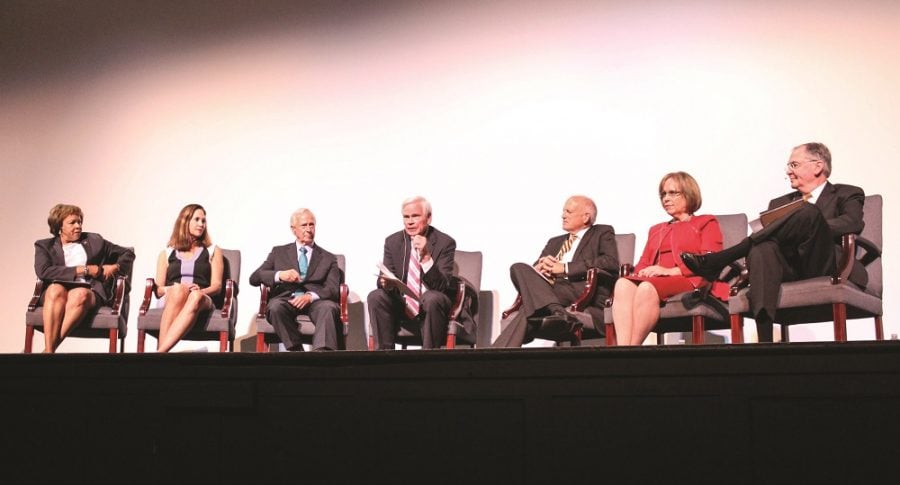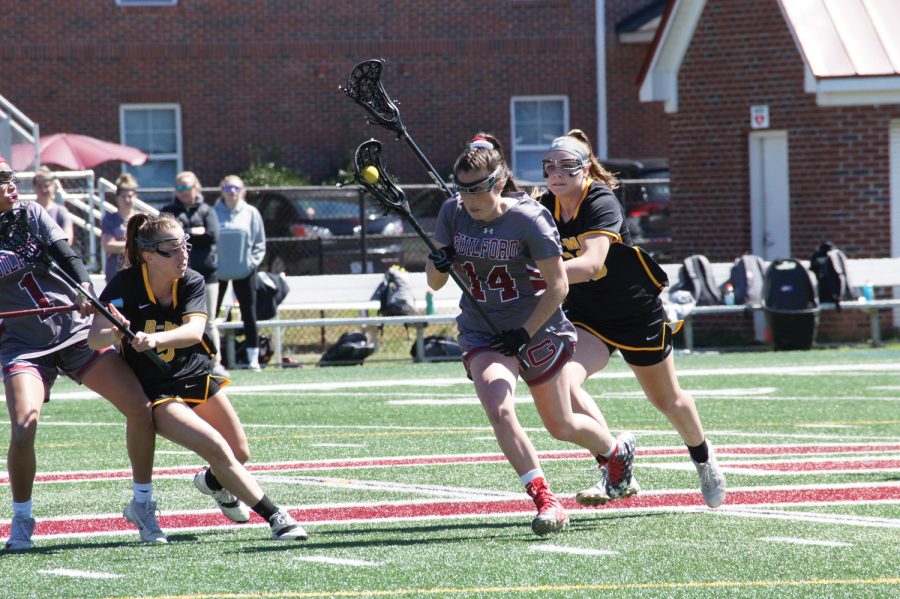It is not often that college presidents get to talk to each other about the issues facing private higher education and even less often that the public gets to listen in.
On Sept. 12, six college presidents gathered on the stage of the Carolina Theater for the first time ever to participate in a conversation about the challenges and benefits of private higher education.
Preservation Greensboro, the organization in charge of Governor Morehead’s Blandwood Mansion, ran an event with two presidents of the University of North Carolina back in May. Afterwards, Ed Winslow, the chair of Guilford College’s Board of trustees, reached out to John Graham, development director for Preservation Greensboro and suggested a similar forum for the area’s private colleges.
The presidents of Elon College, Wake Forest University, Duke University, Davidson College, Bennett College and Guilford College all attended to discuss a wide range of issues moderated by D. G. Martin, host of “North Carolina Bookwatch.”
“We wanted the top private schools in North Carolina,” said Graham. “Every one of these presidents has some high stature in the higher education community.”
Each president was asked a question relevant to their experience, and then the others could join in as they wished.
Guilford College President Jane Fernandes was asked specifically about how the religious roots of Guilford influenced the college today.
“(When The College was founded) I think we would have been considered a Quaker college,” said Fernandes. “(Now), we are a college rooted in Quaker heritage.”
While most students are no longer Quaker and Guilford welcomes students of all backgrounds, Guilford’s seven core values explicitly come out of the Quaker tradition.
All the colleges represented have connections to some Christian denomination, so the other presidents shared how they addressed this challenge of balancing founding values with the demands of education and the goal of welcoming everyone.
Other issues discussed were balancing athletics and academics, paying for a private education, trigger warnings, the changes to undergraduate education and the continued relevancy of historically black colleges and universities.
While some of the issues — like religious values — were broadly applicable, the range of colleges involved led to some very different approaches to these issues.
“The hierarchy from small to big was interesting,” said senior Yves Dusenge.
For example, Duke guarantees that they will meet the financial needs of anyone who is accepted.
However, colleges like Bennett where a student’s average income is $40,000, struggle to balance their budgets with their commitments to diversity.
“The need for diversity … is something that affects us all, but small schools understand it more clearly,” Fernands told The Guilfordian after the forum. “(This may be because) for a small school like us, there’s a very small margin of error.”
The audience included local professors and administrators in higher education, students, members of the community and even a state senator.
Guilford students also had an opportunity to get free tickets to the event, and several attended.
“I was glad Jane brought up students’ efforts to be social justice oriented,” said junior and Student Body President Gerardo Marcos-Ocampo. “But the conversation could have gone deeper. I think (the presidents) could have tied any of those questions to social justice.”
Although the reaction from some students was mixed, Fernandes appreciated their support.
“I do want to thank all the Guilford College community who came,” she said. “I felt safer up on stage because I knew the Guilford College community was there.”











